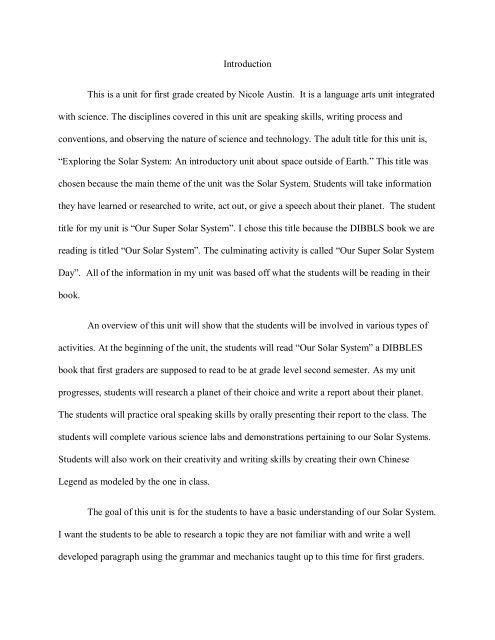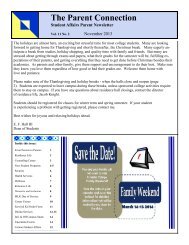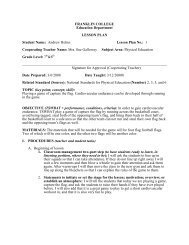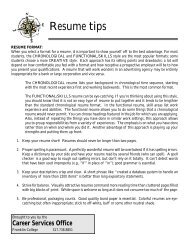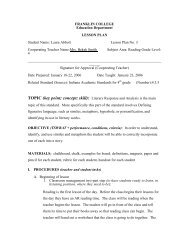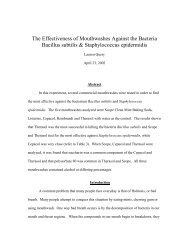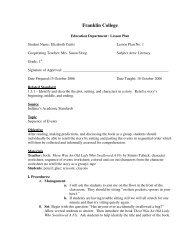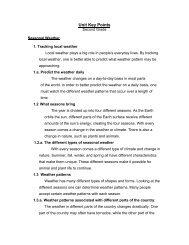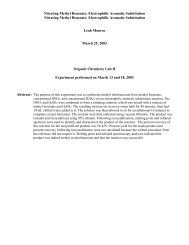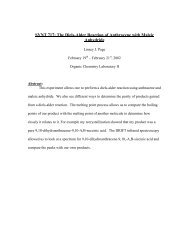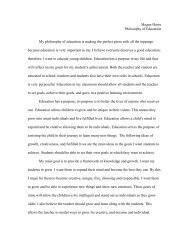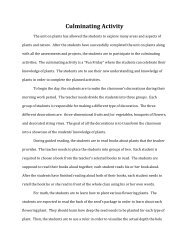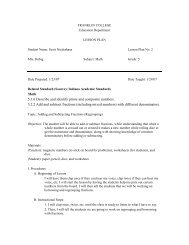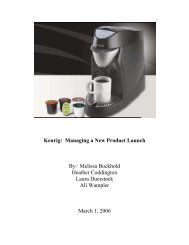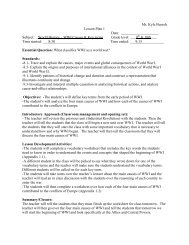Introduction This is a unit for first grade created by ... - Franklin College
Introduction This is a unit for first grade created by ... - Franklin College
Introduction This is a unit for first grade created by ... - Franklin College
Create successful ePaper yourself
Turn your PDF publications into a flip-book with our unique Google optimized e-Paper software.
<strong>Introduction</strong><br />
<strong>Th<strong>is</strong></strong> <strong>is</strong> a <strong>unit</strong> <strong>for</strong> <strong>first</strong> <strong>grade</strong> <strong>created</strong> <strong>by</strong> Nicole Austin. It <strong>is</strong> a language arts <strong>unit</strong> integrated<br />
with science. The d<strong>is</strong>ciplines covered in th<strong>is</strong> <strong>unit</strong> are speaking skills, writing process and<br />
conventions, and observing the nature of science and technology. The adult title <strong>for</strong> th<strong>is</strong> <strong>unit</strong> <strong>is</strong>,<br />
“Exploring the Solar System: An introductory <strong>unit</strong> about space outside of Earth.” <strong>Th<strong>is</strong></strong> title was<br />
chosen because the main theme of the <strong>unit</strong> was the Solar System. Students will take in<strong>for</strong>mation<br />
they have learned or researched to write, act out, or give a speech about their planet. The student<br />
title <strong>for</strong> my <strong>unit</strong> <strong>is</strong> “Our Super Solar System”. I chose th<strong>is</strong> title because the DIBBLS book we are<br />
reading <strong>is</strong> titled “Our Solar System”. The culminating activity <strong>is</strong> called “Our Super Solar System<br />
Day”. All of the in<strong>for</strong>mation in my <strong>unit</strong> was based off what the students will be reading in their<br />
book.<br />
An overview of th<strong>is</strong> <strong>unit</strong> will show that the students will be involved in various types of<br />
activities. At the beginning of the <strong>unit</strong>, the students will read “Our Solar System” a DIBBLES<br />
book that <strong>first</strong> <strong>grade</strong>rs are supposed to read to be at <strong>grade</strong> level second semester. As my <strong>unit</strong><br />
progresses, students will research a planet of their choice and write a report about their planet.<br />
The students will practice oral speaking skills <strong>by</strong> orally presenting their report to the class. The<br />
students will complete various science labs and demonstrations pertaining to our Solar Systems.<br />
Students will also work on their creativity and writing skills <strong>by</strong> creating their own Chinese<br />
Legend as modeled <strong>by</strong> the one in class.<br />
The goal of th<strong>is</strong> <strong>unit</strong> <strong>is</strong> <strong>for</strong> the students to have a basic understanding of our Solar System.<br />
I want the students to be able to research a topic they are not familiar with and write a well<br />
developed paragraph using the grammar and mechanics taught up to th<strong>is</strong> time <strong>for</strong> <strong>first</strong> <strong>grade</strong>rs.
<strong>Th<strong>is</strong></strong> includes writing at least six sentences and having a capital letter and punctuation at the end<br />
of a sentence. The Solar System <strong>is</strong> a very abstract concept <strong>for</strong> <strong>first</strong> <strong>grade</strong> students, since the<br />
students have to read “Our Solar System” in the class, I wanted to create a <strong>unit</strong> that would go<br />
more in depth about the material they will be reading. I have <strong>created</strong> labs <strong>for</strong> the in<strong>for</strong>mation<br />
given in the book so the students can have a better understanding of what they are reading. I tried<br />
to find a variety of activities to present the in<strong>for</strong>mation keeping in mind all of the different<br />
intelligences and learning levels that are in my classroom.<br />
For th<strong>is</strong> <strong>unit</strong>, I have made special adaptations <strong>for</strong> two particular students in my classroom.<br />
Student A <strong>is</strong> an Engl<strong>is</strong>h Language Learner. He moved to America two years ago, and <strong>is</strong> still<br />
learning the vocabulary and structure of our language. He <strong>is</strong> a very shy individual, but has started<br />
become more social with the other students as the semester progresses. Pictures and short clear<br />
directions help him stay on task and complete assignments. The second student, student B, that I<br />
have made adaptations <strong>for</strong> has ADHD. She has a hard time staying focused and completing the<br />
same work load that other students in the class are able to do. <strong>Th<strong>is</strong></strong> student has a hard time sitting<br />
<strong>for</strong> long periods of time and learns best when she <strong>is</strong> up out of her seat and moving around. I have<br />
adapted my activities <strong>for</strong> her so she <strong>is</strong> not in her seat <strong>for</strong> long periods of time. I chose to make<br />
adaptations <strong>for</strong> these two students because they apply to other students in the class. There are<br />
five other ESL students, so they can benefit from the adaptations made <strong>for</strong> student A. Since I am<br />
working in a low level <strong>first</strong> <strong>grade</strong> classroom, the majority of the students in the class like moving<br />
and being out of their seat.<br />
Like all material taught in class, th<strong>is</strong> <strong>unit</strong> <strong>is</strong> driven <strong>by</strong> the Indiana State Standards <strong>for</strong> <strong>first</strong><br />
<strong>grade</strong>. I used standards in both Language Arts and Science to create my activities <strong>for</strong> th<strong>is</strong> <strong>unit</strong>.<br />
The Language Arts standards include1.2.1, 1.2.3, 1.2.5, 1.2.7 , 1.3.1, 1.4.1, 1.4.2, 1.4.3, 1.4.5,
1.5.2, 1.5.5, 1.6.6, 1.6.7, 1.7.1, 1.7.6, 1.1.12, 1.1.15, and 1.7.4. The Science standards include<br />
1.2.4, 1.3.4, 1.6.1, and 1.6.2.<br />
I would like to thank my professors Marcia Grossnickle and Linda Airey <strong>for</strong> their<br />
dedication and work put in to help th<strong>is</strong> <strong>unit</strong> be successful. Professor Grossnickle was a valuable<br />
resource <strong>for</strong> the adaptations <strong>for</strong> students with learning d<strong>is</strong>abilities are special needs. Dr. Airey<br />
was a fantastic resource <strong>for</strong> me to get ideas and activities from concerning the science portion of<br />
my <strong>unit</strong>. I would also like to thank my cooperating teacher Mrs. Snead <strong>for</strong> sharing with me what<br />
has and has not worked in the past when she taught th<strong>is</strong> <strong>unit</strong> on the Solar System. I was able to<br />
learn how to take a very abstract concept and teach it in a way that lower elementary students<br />
could understand. I could not have done that without her help and support. Without the help from<br />
my cooperating teacher and professors I would not have been able to make such an in-depth <strong>unit</strong><br />
<strong>for</strong> my classroom. Thank you to all <strong>for</strong> your guidance and support!


